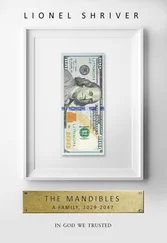As the envelope fluttered into the blue maw, she frowned. If “internet vulnerabilities” had been fixed, why did we still have to pay electric bills by check?
The “gentry” encroaching ever farther east into Brooklyn took private transport. As usual the only white passenger on the standing-room-only bus, Florence strained to pick up any reference to Alvarado’s address. The Afri-mericans spoke their own dialect, only partially discernible to honks, infiltrated by scraps of mangled Spanish. Among the Lats, the only rapid urban Spanish she could confidently translate concerned the latest music rage, beastRap, comprising birdcalls, wolf howls, lion roars, cat purrs, and barking. (Not her thing, but when artfully mixed, some of the songs were stirring.) A screeching seagull tune with an overlaid rhythm track of pecking seemed to generate more excitement on the B41 than the wholesale voiding of American bonds. Yet once the news filtered down to the street, gold nationalization wouldn’t go down well with this crowd, many of whose toughs were looped with gleaming yellow chains. It was hard to picture these muscular brothers and muchachos lining up patriotically around the block to deliver their adornments to the Treasury. With the likes of that hulking weight-room habitué looming by the door—were the feds planning to wrestle him to the pavement and yank out the gold teeth with pliers?
A generation ago, this stretch of Flatbush Avenue north of Prospect Park was trashy with the loud rinky-dink of carpet warehouses, discount drug stores, nail salons, and delis with doughnuts slathered in pink icing. But after the stadium was built at the bottom of the hill, the neighborhood spiffed up. The “affordable housing” that developers promised as part of the stadium deal with the city was nearly as costly as the luxury apartments. Flatbush’s rambunctious street feel had muted to a sepulchral hush. Pedestrians were few. The bee-beep of the private vans that used to usher the working class up and down the hill for a dollar had been replaced by the soft rush of electric taxis. The avenue was oh, so civilized, and oh, so dead.
Florence rather relished the fact that the commercial transformation of the once vibrant, garish area must have put the well-heeled new residents to no end of inconvenience. Oh, you could get a facelift nearby, put your dog in therapy, or spend $500 at Ottawa on a bafflingly trendy dinner of Canadian cuisine (the city’s elite was running out of new ethnicities whose food could become fashionable). But you couldn’t buy a screwdriver, pick up a gallon of paint, take in your dry cleaning, get new tips on your high heels, copy a key, or buy a slice of pizza. Wealthy residents might own bicycles worth $5K, but no shop within miles would repair the brakes. Why, the nearest supermarket was a forty-five-minute hike to Third Avenue. High rents had priced out the very service sector whose presence at ready hand once helped to justify urban living. For all practical purposes, affluent New Yorkers resided in a crowded, cluttered version of the countryside, where you had to drive five miles for a quart of milk.
Florence hopped off at Fulton Street and headed east with her collar pulled close. Fall had been merciful so far, and this was the first day of the season the wind had that bite in it, foretelling yet another vicious New York winter. The jet stream seemingly having hove south across the whole country for good, the anachronism global warming had been conclusively jettisoned in the US. She hung a left on Adelphi Street, whose traffic had grown lighter now that the underpass was closed off a few blocks farther up; ever since the horrendous collapse of the Brooklyn-Queens Expressway along Hamilton Avenue, not far from her parents’ house, no one was allowed to come near it.
She assessed the intake line as pro forma: about twenty families, the ubiquitous strollers looped with as many bags as they could carry without toppling over. Several adults were smoking. These were some of the last holdouts who puffed on real cigarettes, despite their being far pricier than steamers. Ridiculous, since she’d never been addicted herself, but the sharp, toxic scent of tobacco made Florence nostalgic.
On a leafy street in Fort Greene, the Adelphi Family Residence was formerly a private apartment building willed to the city by a childless landowner—one of a torrent of bequests that had poured into public coffers as well as into private charities from the boomer generation, a hefty proportion of which had neglected to reproduce and had no one else left to be nice to. The tall, tawny-bricked building with period details was a big step up from the much-discredited and now-defunct Auburn shelter in the projects a few blocks away. To accommodate more residents, the apartments had been carved into stingier units with no kitchens and communal bathrooms, but there was also a cafeteria and nominal rec room (whose Ping-Pong tables never had balls). Funny, she and Esteban could never afford this tony a neighborhood in a million years.
Florence waved at Mateo and Rasta, the guards at the entrance, then threw her backpack on the lobby’s security belt and did a stylish twirl in the all-body X-ray. (Mere metal detectors no longer cut it. Plastic gun replicas made from home 3-D printers had improved.) It was too bad that the lobby’s intricate nineteenth-century tiling was obscured by posters—home is where the heart is!; success is just failure tried one more time!—though the cheerful admonishments helped to compensate for the grimmer notice, verbal or physical abuse of staff will not be tolerated.
Adelphi wasn’t the vermin-infested hellhole teeming with sexual predators that her pitying neighbors like Brendon the Financial Clairvoyant no doubt imagined. What depressed Florence about her job, then, wasn’t squalor, or even the poverty and desperation that drove people here. It was the aimlessness. The collective atmosphere of so many people in one place having lost any purposeful sense of traveling from point A to point B—that milling-about-and-waiting-to-die fug that penetrated the institution—disquieted her not for its contrast with her own driving, forward-thrust story, but for its reflection of how she, too, felt much of the time. At Barnard, she’d never have imagined herself mopping up vomit with the best of them, save perhaps in a charitable capacity, in some brave, brief experimental phase before getting on with her career. She didn’t understand how she ended up at Adelphi any more than its residents did. She didn’t know what could possibly lie on the other side of this place for her any more than they did, either. While crude survival from one day to the next might be every human’s ultimate animal goal, for generations the Mandible family had managed to dress up the project as considerably more exalted. Motherhood might have provided a sense of direction, and Willing did give gathering indications of being bright—but the smarter he seemed, the more she felt impotent to do right by his talents. Unlike Avery, she’d no problem with Willing being taught in Spanish, so long as he was taught. Yet every fact he volunteered, every skill he exhibited, either she had taught her son or her son had taught himself. The school sucked.
An armed security guard behind her, Florence assumed the desk in the lobby and processed the morning’s arrivals. As ever, a handful of families imagined they could simply show up at the door and grab a bed. Ha! So she’d send them to the DHS intake in the South Bronx, along with a voucher for the van parked outside. Few would be back. Qualifying as homeless was an art, and God forbid you should mention a great-uncle with a spare room in Arkansas or you’d be on the red-eye bus to Little Rock that night. For the others who’d jumped the hoops, arriving with fattening sheaves of documents in sticky plastic binders, Adelphi had barely enough vacant units, and larger families would be crowded. The shelter operated at maximum capacity because two-thirds of the units were permanently bed-blocked. In theory, shelter accommodation was temporary. In practice, most residents lived here for years.
Читать дальше












